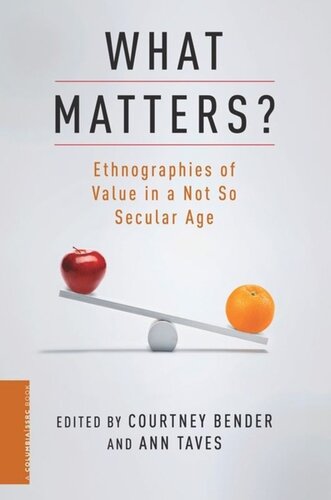

Most ebook files are in PDF format, so you can easily read them using various software such as Foxit Reader or directly on the Google Chrome browser.
Some ebook files are released by publishers in other formats such as .awz, .mobi, .epub, .fb2, etc. You may need to install specific software to read these formats on mobile/PC, such as Calibre.
Please read the tutorial at this link: https://ebookbell.com/faq
We offer FREE conversion to the popular formats you request; however, this may take some time. Therefore, right after payment, please email us, and we will try to provide the service as quickly as possible.
For some exceptional file formats or broken links (if any), please refrain from opening any disputes. Instead, email us first, and we will try to assist within a maximum of 6 hours.
EbookBell Team

5.0
98 reviewsOver the past decade, religious, secular, and spiritual distinctions have broken down, forcing scholars to rethink secularity and its relationship to society. Since classifying a person, activity, or experience as religious or otherwise is an important act of valuation, one that defines the characteristics of a group and its relation to others, scholars are struggling to recast these concepts in our increasingly ambiguous, pluralistic world.
This collection considers religious and secular categories and what they mean to those who seek valuable, ethical lives. As they investigate how individuals and groups determine significance, set goals, and attribute meaning, contributors illustrate the ways in which religious, secular, and spiritual designations serve as markers of value. Reflecting on recent ethnographic and historical research, chapters explore contemporary psychical research and liberal American homeschooling; the work of nineteenth and early-twentieth-century American psychologists and French archaeologists; the role of contemporary humanitarian and volunteer organizations based in Europe and India; and the prevalence of highly mediated and spiritualized publics, from international psy-trance festivals to Ghanaian national political contexts. Contributors particularly focus on the role of ambivalence, attachment, and disaffection in the formation of religious, secular, and spiritual identities, resetting research on secular society and contemporary religious life while illuminating what matters in the lives of ordinary individuals.